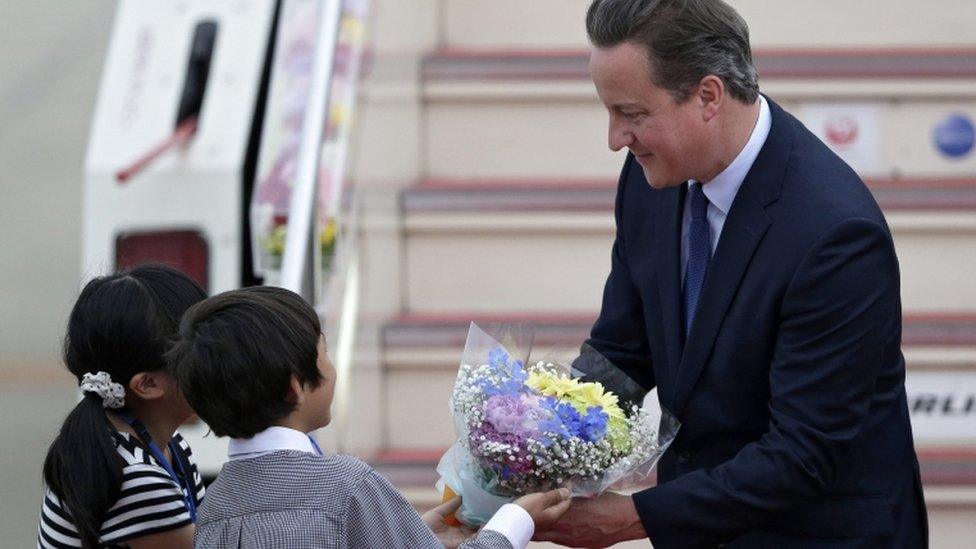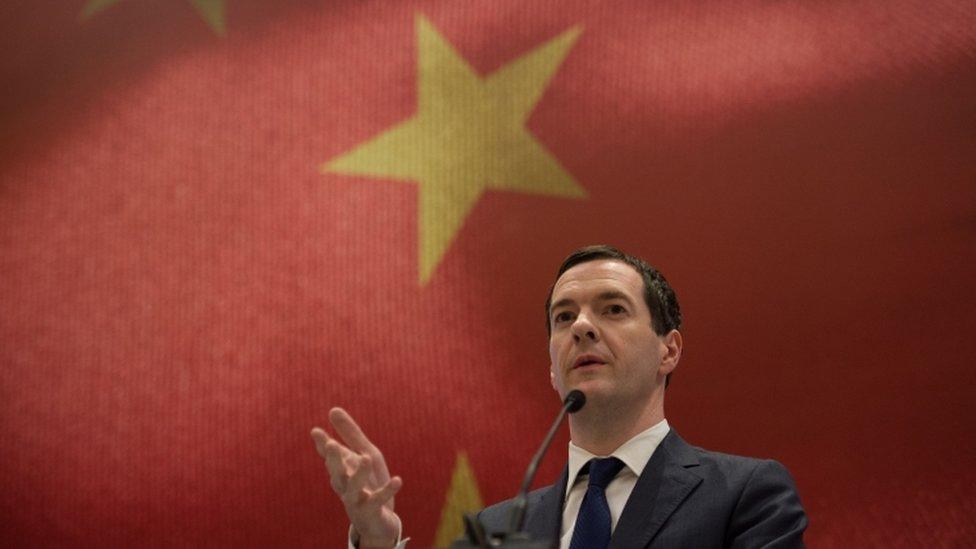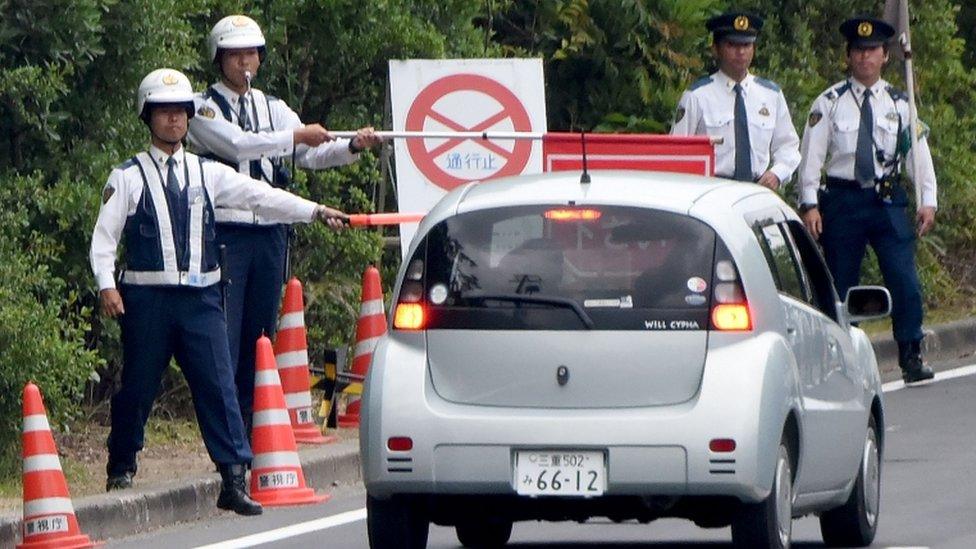G7 summit could be rocky for Cameron
- Published

David Cameron will hope for support for his EU referendum campaign
There is an old joke about summits being places where politicians gather to agree that "summat" ought to be done.
And it is true that many international meetings produce more words than actions. But at this week's meeting of G7 industrialised nations in Japan, words will probably be enough for David Cameron, so long as they support Britain staying in the EU.
On his last scheduled overseas visit before next month's referendum, the prime minister will be more than happy if he can get a pro-Remain endorsement from world leaders before dashing home to continue campaigning for his political life and our future relationship with the EU.
The referendum is not officially on the summit agenda and British officials insist there is no plan for any kind of joint statement.
But they admit that Brexit will be discussed on the margins of this meeting in central Japan.
And G7 communiques rarely come in at anything less than 15 pages so it would be surprising if they could not find room for a sentence or two warning of the dangers of Britain leaving the EU.
The UK's EU referendum: All you need to know
Mr Cameron's team is aware that many voters might look askance at yet more foreigners telling them how to vote.
But Number Ten calculates that the benefits of more serious figures lining up for Remain outweigh any potential costs.
If David Cameron is hoping for a straightforward summit, he could be disappointed. For the prime minister could find himself on the wrong end of several discussions with his counterparts from Germany, France, Italy, Japan, Canada and the US.
Courting China
The economic behemoth in the room at Ise-Shima is China. Britain has been conspicuous in recent months in its attempts to court Beijing: British politicians flying in, President Xi coming to the UK, the government one of the first backers of China's new Asian infrastructure investment bank.
And yet Japan and other countries in Asia have joined the US in sharing growing concerns about what some see as China's attempts to project its power in the region.
They worry particularly about Beijing's programme of building military and transport infrastructure on disputed islands in the South China Sea.

Chancellor George Osborne has assiduously cultivated relations with China in recent months
Prime Minister Abe of Japan wrote in Wednesday's Wall Street Journal, external: "Ensuring freedom of navigation is both a prerequisite for economic growth and a precondition for stability and peace. Regrettably, not every nation recognises that and we are seeing unilateral action being taken that undermines the rule of law in the sea, changes the status quo and escalates international tensions."
So while Japan is looking for a strong statement at the G7 in favour of everyone in the region following international maritime rules, Her Majesty's government might not want to be put in the position of annoying George Osborne's new best friends.
British officials use their language very carefully when asked about this. "We have been very clear about the South China Sea," said one. "It is not an area for us to take a position. But we are clear that all claims should be pursued through international law."
And that is not all. At this summit, the overproduction of steel is very much on the agenda. And one of the countries facing accusations of flooding the global market is China, something that many blamed for the decline of Tata steel in South Wales.

Security around the summit is tight
But while some here in Japan may look for tough language on this, British diplomats are cautious. "Steel oversupply is not just a China issue," one said. "It's a global issue."
If the UK might feel isolated over China, it might also find itself at odds with other countries over the global economy. In recent months the International Monetary Fund has successively cut its growth forecasts, external.
Prime Minister Abe of Japan is looking for the G7 to support a greater fiscal stimulus to boost investment and spur growth in his country as much as elsewhere.
Other G7 countries are up for this, except Germany and the UK which both still favour continued austerity over greater spending.
"Flexibility is key," one UK official told me. "There shouldn't be a one size fits all economic policy across the G7."
This G7 may take place in a remote part of Japan prevalent to earthquakes but few expect any seismic changes to be agreed within the summit's high-security walls.
David Cameron may get his pro-Remain endorsements but that does not mean he will always be on steady ground.

G7 members:
Canada
France
Germany
Italy
Japan
UK
US
